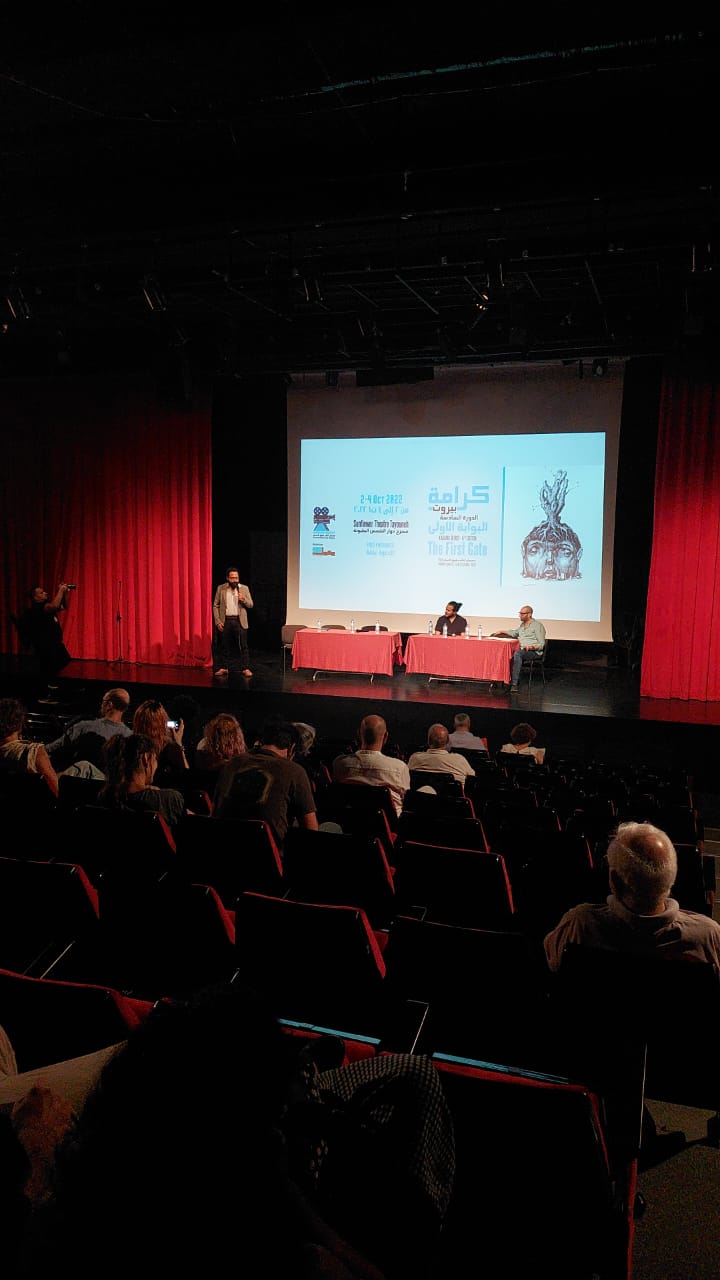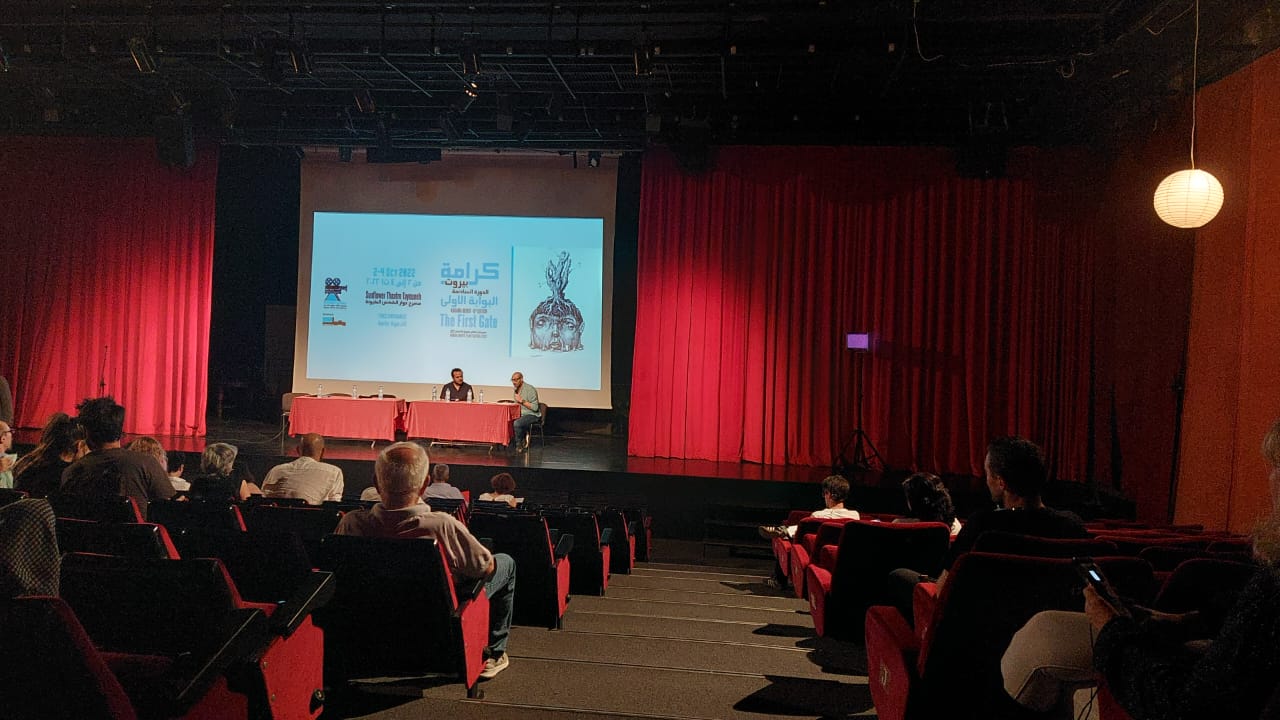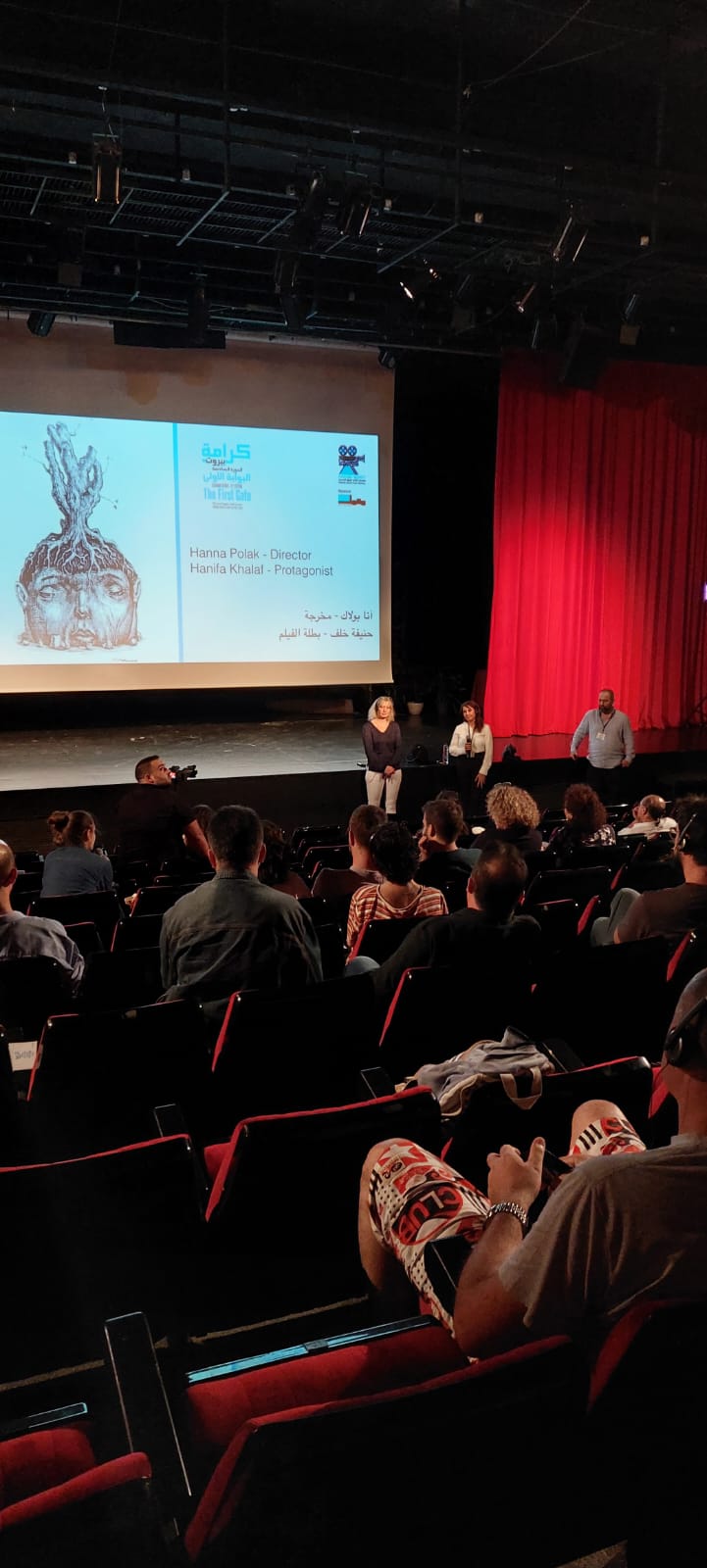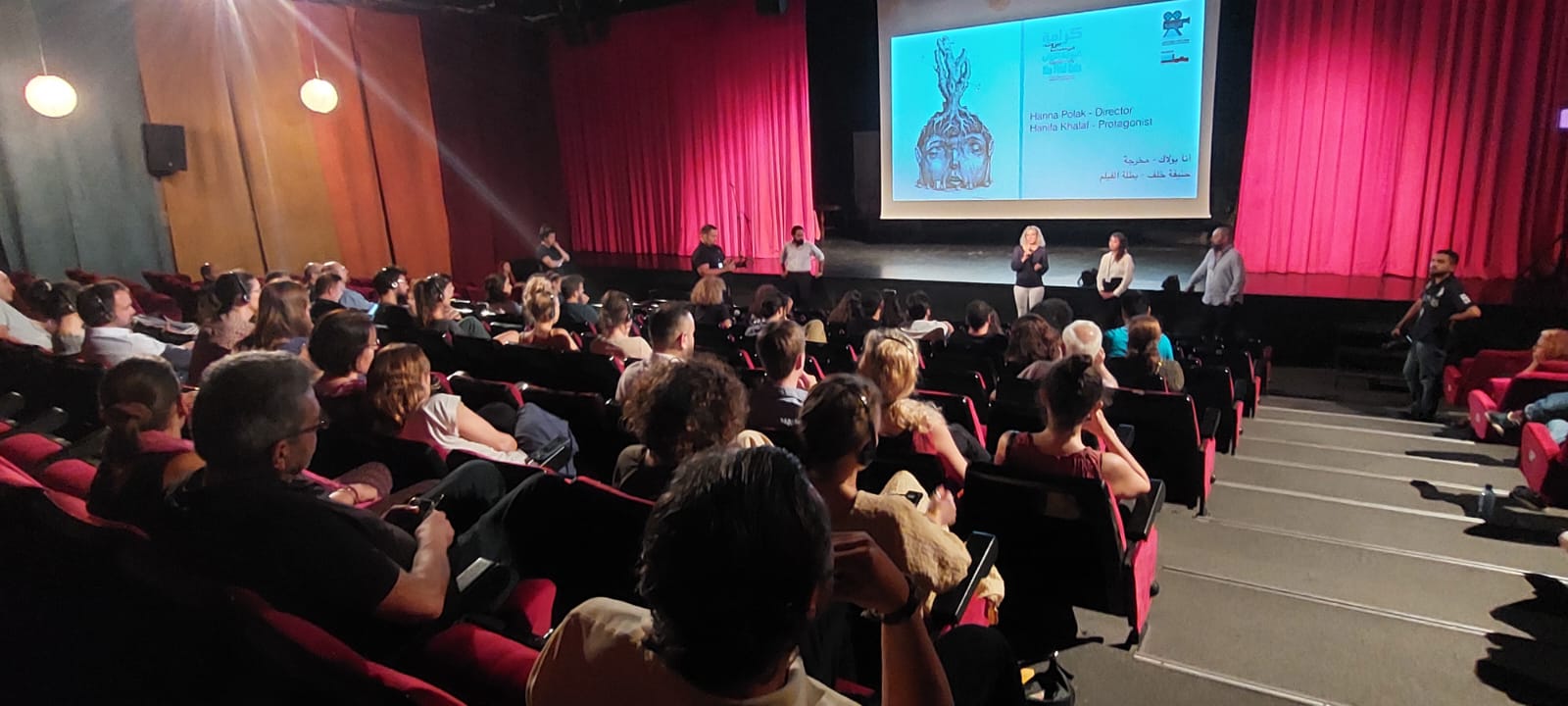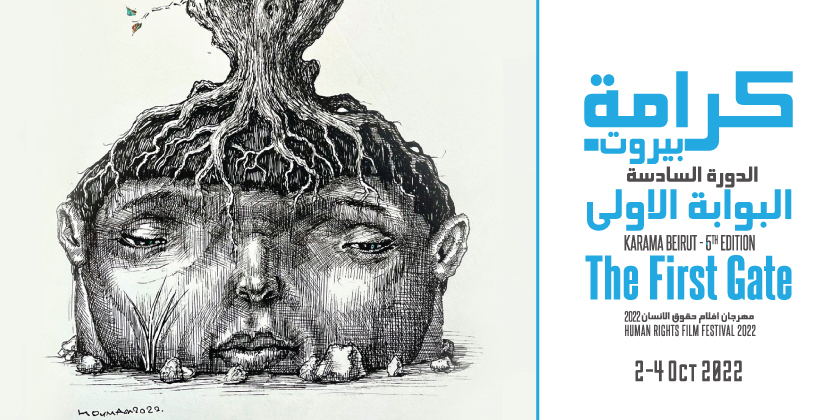
THE FIRST GATE
The MENA Prison Forum at Karama Beirut Human Rights Film Festival
Sunflower Theater, Beirut, Lebanon
OCT 4, 2022
UMAM Documentation and Research (UMAM D&R), through its initiative the MENA Prison Forum (MPF), collaborated with the sixth edition of the Karama Human Rights Film Festival (KHRFF) in 2022 in Beirut, Lebanon. The festival took place over three days from 2-4 October, 2022, at the Tournesol (Sunflower) Theater in Tayyouneh, Beirut. On the third day, the MPF hosted a selection of films from Greece, Libya, and Iraqi Kurdistan and a panel discussion “The Fourth Perspective: Narrating MENA Prisons from Beirut.”
This edition of the KHRFF focused on themes related to reconciliation with the past as a gate for a better future, which the MPF engaged with in regards to prison and carceral dynamics. The MPF day of the festival opened with the screening of the Greek Film Your Neighbour’s Son:
The Making of a Torturer (1976), a documentary by Jørgen Flindt Pedersen and Erik Stephensen. The film follows the recruitment and training of young men in the Greek Police during the military rule in the country between 1967 and 1974. It addresses the issue of an institution's authority to compel moral human beings to torture. Moreover, the documentary examines the operations and methods of the Greek military, particularly with respect to its carceral policies and practices.
The second film was Prisoner and Jailer (2019) by Muhannad Lamin. It deals with the issue of exchanging roles and locations between the prisoner and the jailer during the political phases that Libya experienced before and after the ruling regime of Muammar Qaddafi and the Libyan 2011 revolution. These political changes impose a radical shift in the positions of power and occupant between the prisoner and the jailer. The film follows a jailer who was the director of a Abu Salim prison during the reign of Muammar Gaddafi who was subsequently detained after the 2011 uprisings and the arrival of anti-government groups. His story is juxtaposed with the story of a prisoner who was an imam of a mosque and a political opponent who, with the Libyan revolution, becomes the director of the prison where he was imprisoned. The short film shows this complicated game of exchanged roles between prisoners and the jailers that came with the upheaval in Libya.
Following the second film, the “Fourth Perspective” panel gathered Muhannad Lamin with Syrian writer and art critic Alaa Rachidi to discuss the former’s film. They were also joined by MPF’s Mina Ibrahim and scholars Hana Jaber and Marwan Abi Samra to reflect on the current status of prisons in the MENA region in light of its cinematic representations. The discussion intentionally combined activist work and perspectives with research and academic studies and artistic work as part of the MPF’s mission to intersect these three fields of work in engaging with carceral dynamics in the MENA region. As Ibrahim said, “One language is not enough, and multilingualism must be combined with methods of expressing prison issues.” Indeed, the set of activities and events organized by the MPF have always made sure to balance and to open conversations using tools and language from various works and worlds.
The night closed with the documentary Angels of Sinjar directed by Hanna Pollack (2022). The film focuses on the effects of the genocide committed by ISIS against Yezidi communities in the mountains of Sinjar in northern Iraq. It depicts the scale of destruction, captivity, displacement, and murder through the personal attempts of Hanifa and Saeed to search for and liberate their family members. Hanifa lost a large part of her family during the genocide, and she devotes her life to searching for her three sisters who were kidnapped and taken by ISIS. The film follows her struggle to track down her family members and liberate them, in the process also supporting other families who are in similar situations. Saeed is similarly followed as he searches for his two brothers who were kidnapped by ISIS as children and recruited to take part in its military operations. Following the film, there was a conversation with Hanifa and the director Hannah Pollack. The director shed light into the difficulty of shooting the film in light of the tragedies of death, forced migration, and genocide suffered by Yazidi families in Iraq. She also called for condemnation of religious violence and for reparations to survivors of such violence, and specifically addressed the complicated nature of engaging with issues related to gender violence.
Panel discussion: “The Fourth Perspective: Narrating MENA Prisons from Beirut"
October 5, 2022 | النهار
مهرجان كرامة - بيروت يسلط الضوء على المصالحة تمهيداً ليوم الأمم المتحدة
مهرجان كرامة - بيروت يسلط الضوء على المصالحة تمهيداً ليوم الأمم المتحدة
October 4, 2022 | NAHARNET
Karama Beirut Film Festival highlights reconciliation in run-up to UN Day
Karama Beirut Film Festival highlights reconciliation in run-up to UN Day
October 4, 2022 | SAWTBEIRUT
Karama Beirut film festival highlights reconciliation in run-up to un day
Karama Beirut film festival highlights reconciliation in run-up to un day
October 3, 2022 | ULTRA SAWT
مهرجان "كرامة لأفلام حقوق الإنسان".. شهادات سينمائية عن السجون والتعذيب
مهرجان "كرامة لأفلام حقوق الإنسان".. شهادات سينمائية عن السجون والتعذيب
October 3, 2022 | ICI BEYROUTH
Soirée cinématographique signée Umam, Mena Prison Forum et Karama
Soirée cinématographique signée Umam, Mena Prison Forum et Karama
October 2, 2022 | المدن
مهرجان كرامة..أفلام عن السجن من سوريا إلى ليبيا
مهرجان كرامة..أفلام عن السجن من سوريا إلى ليبيا
September 27, 2022 | NNA
"مهرجان كرامة - بيروت لأفلام حقوق الإنسان" ينطلق الاحد 2 ت1 احتفالاً بـ"يوم الأمم المتحدة"
"مهرجان كرامة - بيروت لأفلام حقوق الإنسان" ينطلق الاحد 2 ت1 احتفالاً بـ"يوم الأمم المتحدة"
September 27, 2022 | EXECUTIVE BULLETIN
“Karama – Beirut Human Rights Film Festival” Kicks off Sunday, 2 October in Run-Up to UN Day
“Karama – Beirut Human Rights Film Festival” Kicks off Sunday, 2 October in Run-Up to UN Day
